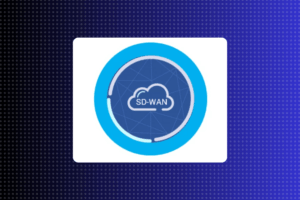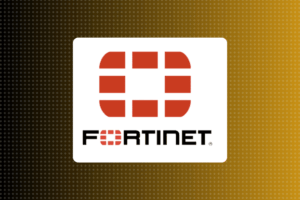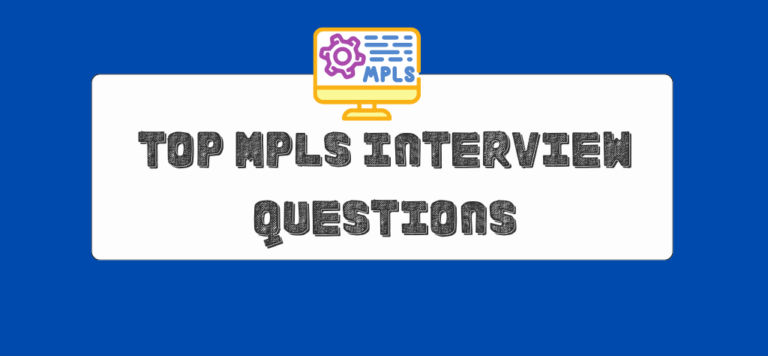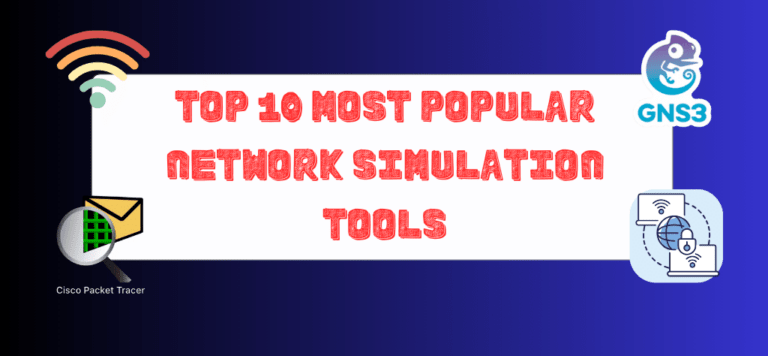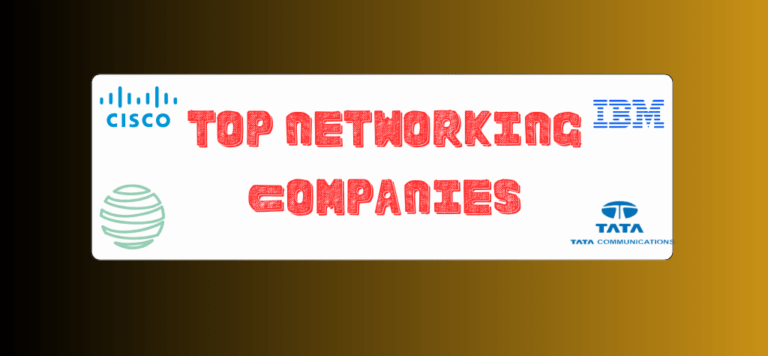Introduction
In today’s rapidly evolving technological landscape, network engineers play a pivotal role in ensuring seamless communication and connectivity. As organizations seek skilled professionals to manage their intricate networks, the interview process becomes a critical step in identifying the right candidates. This article delves into the world of Top 200+ network engineer interview questions, providing insights for both interviewers and candidates.
In an era of growing global connectivity, businesses are increasingly dependent on resilient network infrastructure. Developing networking knowledge and certification not only boosts your technical capabilities but also unveils a plethora of job opportunities. Employers are actively in search of individuals who can proficiently design, implement, and oversee efficient network solutions.
Top 10+ Networking Certifications/Courses:-
-
CCNA
-
CCNP Enterprise
-
CCIE Enterprise Infrastructure
-
CCNP Security
-
CCIE Security
-
CompTIA Network+
-
Certified Ethical Hacker-CEH
-
F5 Technology Specialist LTM , DNS
-
Checkpoint CCSA
-
Checkpoint CCSE
-
Palo Alto Firewall PCNSA
-
Palo Alto Firewall – PCNSE
-
AWS Certified Advanced Networking – Specialty
-
Juniper Networks Certified Internet Associate (JNCIA)
Key Skills and Qualifications for a Network Engineer
Before we dive into specific network engineer interview questions, let’s outline the essential skills and qualifications that make a proficient network engineer. A solid foundation in networking protocols, certifications like CCNA or CCNP, and a relevant educational background are often prerequisites.
Preparing for a network engineer interview involves a mix of technical knowledge, problem-solving skills, and the ability to articulate your thoughts effectively.
Below is a list of Top 200 Network Engineer Interview Questions
General Network Interview Questions:
-
What is a computer network?
-
Explain the OSI model.
-
Differentiate between a hub, switch, and router.
-
Define the terms LAN, WAN, and MAN.
-
What is the purpose of a subnet mask?
-
Explain the difference between TCP and UDP.
-
What is DNS and how does it work?
-
Describe the role of ARP in a network.
-
What is the purpose of DHCP?
-
Define VLAN and its benefits.
-
Explain the concept of NAT.
-
Differentiate between half-duplex and full-duplex communication.
-
What is a gateway in networking?
-
Explain the function of ICMP.
-
What is the purpose of a firewall?
TCP/IP Protocols Network Engineer Interview Questions:
-
What is the significance of the IP address 127.0.0.1?
-
Describe the TCP three-way handshake.
-
Explain the purpose of the ARP protocol.
-
Differentiate between TCP and UDP headers.
-
What is the role of the DHCP protocol?
-
Explain the purpose of the ICMP protocol.
-
What is the function of the DNS protocol?
-
Describe the purpose of the HTTP and HTTPS protocols.
-
Explain the role of NAT in the TCP/IP stack.
-
What is the significance of the default gateway in TCP/IP?
Routing and Switching Network Engineer Interview Questions:
-
What is a routing table?
-
Explain the difference between static and dynamic routing.
-
What is the purpose of RIP, OSPF, and EIGRP?
-
How does a router determine the best path for a packet?
-
Describe the difference between a Layer 2 and Layer 3 switch.
-
What is a MAC address and how is it used in networking?
-
Explain the concept of a VLAN.
-
What is STP (Spanning Tree Protocol)?
-
Describe the purpose of HSRP and VRRP.
-
Explain the difference between access lists and firewall rules.
Network Security Questions:
-
What is a DDoS attack?
-
Explain the concept of a VPN.
-
What is a firewall and how does it work?
-
Define the terms encryption and decryption.
-
What is the purpose of an IDS and IPS?
-
Explain the difference between symmetric and asymmetric encryption.
-
What is a DMZ and why is it used in network security?
-
How does SSL/TLS ensure secure communication?
-
Describe the role of a proxy server in network security.
-
What is a security policy in the context of networking?
Wireless Networking Questions:
-
What is the difference between Wi-Fi and Ethernet?
-
Explain the concept of SSID.
-
What is WPA and WPA2 in wireless security?
-
Describe the difference between 2.4 GHz and 5 GHz Wi-Fi bands.
-
How does roaming work in a wireless network?
-
What is the purpose of a wireless repeater?
-
Explain the concept of WEP and its security vulnerabilities.
-
Describe the differences between ad-hoc and infrastructure modes in wireless networking.
-
What is MU-MIMO in the context of wireless communication?
-
How does Bluetooth differ from Wi-Fi?
Network Troubleshooting Questions:
-
What steps would you take to troubleshoot a network connectivity issue?
-
How does traceroute work?
-
Explain the purpose of ping.
-
Describe the use of nslookup and dig in troubleshooting.
-
What is a network loop, and how can it be prevented?
-
How would you troubleshoot a slow network connection?
-
What is the significance of the 169.254.x.x IP address range?
-
Explain the purpose of Wireshark in network troubleshooting.
-
How can you identify and resolve IP address conflicts?
-
What is the role of the ARP cache in troubleshooting?
Network Design and Architecture Questions:
-
Describe the difference between a star and a mesh topology.
-
Explain the concept of load balancing.
-
What is the purpose of Quality of Service (QoS) in network design?
-
Describe the benefits and drawbacks of a decentralized network architecture.
-
How do you determine the number of subnets in a network?
-
Explain the concept of a virtual LAN (VLAN).
-
What is a subnet mask and how is it used in network design?
-
Describe the advantages of a dual-homed host in network design.
-
How do you plan for network scalability?
-
What considerations are important when designing a secure network?
Cisco-specific Questions Questions:
-
What is the purpose of the Cisco Discovery Protocol (CDP)?
-
Explain the difference between IOS and IOS XR.
-
Describe the purpose of the show ip route command.
-
What is the significance of the enable secret command?
-
How does NAT work on a Cisco router?
-
What is the purpose of the Cisco ASA firewall?
-
Explain the function of the spanning-tree portfast command.
-
Describe the difference between Cisco Catalyst and Nexus switches.
-
What is the purpose of the ip helper-address command?
-
Explain the role of the ACL (Access Control List) on a Cisco device.
Protocols and Standards Questions:
-
What is SNMP, and how is it used in network management?
-
Explain the purpose of BGP in routing.
-
What is the purpose of SIP in VoIP communication?
-
Describe the differences between IPv4 and IPv6.
-
What is the purpose of the MPLS protocol?
-
Explain the function of the H.323 protocol.
-
Describe the differences between FTP and SFTP.
-
What is the purpose of the SMTP protocol?
-
Explain the role of the DHCP relay agent.
-
What is the purpose of the LDAP protocol?
VoIP (Voice over IP) Questions:
-
What is VoIP, and how does it work?
-
Describe the purpose of SIP in VoIP.
-
Explain the concept of RTP and RTCP in VoIP communication.
-
How do you ensure Quality of Service in a VoIP network?
-
What is the role of a PBX in VoIP systems?
-
Describe the differences between H.323 and SIP.
-
How do you troubleshoot poor call quality in a VoIP network?
-
Explain the concept of a softphone in VoIP communication.
-
What is the purpose of the G.711 codec in VoIP?
-
Describe the advantages and challenges of implementing VoIP in an organization.
Network Performance Optimization Questions:
-
How do you optimize network performance?
-
Explain the purpose of bandwidth throttling.
-
What is the significance of Quality of Service (QoS)?
-
How does caching improve network performance?
-
Describe the role of a Content Delivery Network (CDN).
-
What is the purpose of compression in network optimization?
-
Explain the concept of latency and how to minimize it.
-
How can you optimize network performance for video streaming?
-
Describe the benefits of load balancing in a network.
-
How do you troubleshoot network congestion issues?
Cloud Networking Questions:
-
What is cloud computing, and how does it impact networking?
-
Explain the concept of a virtual private cloud (VPC).
-
Describe the differences between IaaS, PaaS, and SaaS.
-
What is the purpose of a CDN in cloud networking?
-
How does SDN (Software-Defined Networking) work?
-
Explain the challenges of network security in a cloud environment.
-
What is the significance of a cloud access security broker (CASB)?
-
Describe the benefits and challenges of hybrid cloud networking.
-
How does serverless computing impact network architecture?
-
What is the role of a load balancer in a cloud environment?
Network Monitoring and Management Questions:
-
How do you monitor network traffic?
-
Explain the purpose of SNMP in network management.
-
What is the significance of NetFlow in network monitoring?
-
Describe the role of syslog in network management.
-
How do you perform network capacity planning?
-
What is the purpose of a network management system (NMS)?
-
Explain the concept of network automation.
-
How do you perform log analysis in network management?
-
Describe the benefits of network segmentation in management.
-
What is the significance of change management in network administration?
IPv6 Network Engineer Interview Questions:
-
What are the advantages of IPv6 over IPv4?
-
Describe the IPv6 addressing format.
-
How does IPv6 address the issue of IP address exhaustion?
-
Explain the purpose of IPv6 transition mechanisms.
-
What is the role of ICMPv6 in IPv6 networks?
-
How does DHCPv6 differ from DHCP in IPv4?
-
Describe the concept of Neighbor Discovery Protocol in IPv6.
-
What is the purpose of IPv6 anycast addressing?
-
How do you configure IPv6 on a router interface?
-
Explain the differences between stateful and stateless autoconfiguration in IPv6.
Network Automation Questions:
-
What is network automation, and why is it important?
-
Explain the concept of Infrastructure as Code (IaC) in network automation.
-
How does Ansible facilitate network automation?
-
What is the role of APIs in network automation?
-
Describe the benefits of using Python for network automation.
-
How do you handle configuration drift in network automation?
-
Explain the concept of intent-based networking.
-
What is the significance of Git in network automation workflows?
-
Describe the differences between imperative and declarative automation.
-
How do you ensure security in network automation scripts?
Network Virtualization:
-
What is network virtualization, and how does it work?
-
Explain the concept of Virtual LANs (VLANs).
-
How does network function virtualization (NFV) enhance network flexibility?
-
Describe the benefits of network virtualization in cloud environments.
-
What is the role of VXLAN in network virtualization?
-
Explain the concept of a virtual switch.
-
How does SDN (Software-Defined Networking) relate to network virtualization?
-
Describe the challenges of securing virtualized networks.
-
What is the purpose of network slicing in 5G networks?
-
How do you troubleshoot issues in a virtualized network?
Network Hardware Questions:
-
Describe the differences between a hub and a switch.
-
What is the purpose of a network interface card (NIC)?
-
Explain the role of a router in a network.
-
What is the significance of a patch panel in network cabling?
-
Describe the purpose of a network firewall.
-
How does a load balancer improve network performance?
-
What is the role of a network bridge?
-
Explain the differences between unmanaged and managed switches.
-
What is the purpose of a network repeater?
-
How does a network gateway differ from a router?
Network Certification Related:
-
What is the CCNA certification, and why is it valuable?
-
Explain the requirements for obtaining the CCNP certification.
-
What is the purpose of the CompTIA Network+ certification?
-
Describe the topics covered in the CCIE Routing and Switching certification.
-
How does the Juniper Networks Certified Professional (JNCIP) certification differ from Cisco certifications?
-
What is the role of the Certified Information Systems Security Professional (CISSP) in networking?
-
Explain the significance of the Certified Ethical Hacker (CEH) certification in network security.
-
Describe the benefits of obtaining the AWS Certified Advanced Networking certification.
-
What is the purpose of the Palo Alto Networks Certified Network Security Engineer (PCNSE) certification?
-
How does the Microsoft Certified: Azure Solutions Architect Expert certification relate to networking?
Behavioral and Scenario-based Questions:
-
Describe a challenging networking problem you faced and how you resolved it.
-
How do you stay updated on the latest networking technologies and trends?
-
Explain a situation where you had to work under pressure to resolve a network issue.
-
Describe a time when you successfully implemented a network upgrade.
-
How do you prioritize and manage multiple tasks in a networking environment?
-
Discuss a situation where you had to collaborate with other IT teams to solve a network-related problem.
-
How do you handle a situation where a network change request could potentially impact the entire organization?
-
Describe a time when you had to troubleshoot a complex network issue and the steps you took to resolve it.
-
How do you approach documenting network configurations and changes?
-
Explain a scenario where you had to implement a security measure to protect the network from a specific threat.
-
Describe a situation where you had to communicate technical information to non-technical stakeholders.
-
How do you ensure compliance with industry regulations and best practices in network management?
-
Discuss a time when you had to balance the need for network security with the requirements for user accessibility.
-
Describe your experience with disaster recovery planning in the context of network infrastructure.
-
How do you stay proactive in identifying and mitigating potential network vulnerabilities?
In conclusion, the success of a network engineer interview lies in a balanced assessment of technical expertise and soft skills. Both interviewers and candidates can benefit from understanding the intricacies involved, ensuring a more effective and insightful evaluation process. Ace your interview with confidence with these above listed top Network Engineer Interview Questions.

